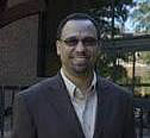Commentary on Luke 21:5-19
Apocalyptic language challenges the status quo.
Recognizing its rhetorical effect is much easier than understanding its real intent. But this type of biblical language is also most difficult to translate into the contemporary scene of Christian life, especially during the season of “ordinary time.” What is the goal in offering a lesson on the “end-of-the-world”? What does the preacher hope an audience will hear? Will do? Will be?
Within Luke’s narrative, the Temple is generally a positive religious space, so little prepares the reader for Jesus’s prediction in chapter 21:
- Simeon enters the Temple “guided by the Spirit” (2:27);
- It is a place of “fasting and prayer” (2:37; 18:10; 19:45);
- The boy Jesus was discovered there learning (2:46);
- Jesus attempts to protect the space as a “house of prayer” (19:45).
Whatever his teaching about the Temple’s destruction might have implied, Jesus continued to teach there even following this teaching (21:37; see also 19:47; 20:1; 22:53). And, the final verse of the story of Luke’s Gospel reports not only the disciples worship of Jesus (in itself quite shocking for first-century Jews!) but also how they remained “continually in the Temple blessing God” (24:53).
The positive portrayal of the temple continues into Luke’s sequel, the Acts of the Apostles:
- Peter and John attend the “hour of prayer” at Temple (3:1-3) and heal a crippled man who “entered the Temple with them” (3:8-10);
- The apostles teach in the Temple area regularly (5:20-25); in fact, “every day in the Temple” they taught Jesus as Messiah (5:42!);
- Paul claims to have caused no “against the temple” (25:8);
- Paul even received his “revelation” (of Jesus’s Gospel) in the Temple (22:17).
So, why should this sacred site be destroyed in the future, if not for some presumed theological tradition (see Micah 3:9-12; Daniel 9:26-29). Within the immediate narrative context, however, there may be clues: widows who give much (Luke 21:1-4); scribes who should not be trusted (20:45-47); Jesus’s symbolic action there (19:45-46). As revolutionary as his actions may have appeared, Jesus continues to go to the Temple daily to teach. His action was clearly meant to be more symbolic than revolutionary. Perhaps, his content here (in Luke 21) is also meant to be more symbolic. Some scholars claim that Jesus advocated for a restored temple during the time of the eschaton.
In some ways, this selection is less about the Temple’s destruction and more about how Jesus’s followers should react to persecution;
- Be prepared to “testify” (Luke 21:13);
- But do not prepare to testify in advance (21:14);
- Depend on Jesus’s “wisdom” (21:15);
- Family breakups will be part of this time (21:16);
- But persevere (21:19).
Jesus expresses concern about the safety of his followers during the (predicted) time of persecution. His message, however, is one of hope: “not a hair of your head will perish” (Luke 21:18). Yet, it would not have been easy to hear that their religious commitment to Jesus might require the breakup of families during the time of persecution. In the communal society of the first-century, the loss of one’s family would be central to one’s identity.
More importantly (since it will happen first; 21:12), the persecution that will come—even from family members (verse 16)—will become an opportunity to “witness.” That is key! But, they should not make no preparations for this time because Jesus will grant the necessary “wisdom” (verse 15) for those moments. In Luke’s Gospel, the word “wisdom” occurs more than in the other three Gospels altogether.
Luke’s primary distinction (from the other Gospels)—in the second half of the story—occurs in verse 15 (“I will give you a mouth and wisdom” unable to be contradicted). As in Israel’s tradition, Wisdom has her “children” (Luke 7:35), an allusion to John the Baptist and Jesus, the latter of which was, as a child, one who “grew in wisdom” and “divine favor” (2:40, 52). Only within the Gospel of Luke is the “Wisdom of God” a speaking agent (11:49) and, so, in this way, God’s “wisdom” will allow the persecuted followers of Jesus to speak when the time comes (21:15). Jesus says that he will provide that wisdom during that time, a wisdom—in the Lukan tradition—that is even greater than Solomon’s (11:31).
We find more evidence of Wisdom’s role in Luke’s sequel (Acts), an important “commentary” (so to speak) on Luke’s Gospel. In Acts, Stephen is one who spoke with “wisdom and spirit” and he remained unchallenged by representatives from the Synagogue of the Formerly Enslaved (see Acts 6:10). Furthermore, Stephen’s speech provides additional examples—Joseph and Moses—of those who expressed God’s “wisdom” and received favor from rulers (like Pharaoh; Acts 7:10) and the Egyptians (Acts 7:22). Wisdom, indeed, has her children.
Jesus’ apocalyptic teaching is odd in light of the rest of the Gospel narrative. If historical, it highlights a side of Jesus’s theological concerns less advertised in mainline Christianity today. Such teaching, however, survives on the fringes of American Christianity. For good or for naught, American preachers who regularly pick up apocalyptic themes in their sermons tend to develop believers who become less interested in the everyday affairs of citizens. Too “heavenly minded to be any earthly good” is a phrase that is occasionally associated with these groups. But I wonder if that description is too kind. It seems that sermons that disregard a bodily-lived faith, in the present order, is not really the Gospel at all. Jesus’s apocalyptic teaching must be viewed in light of the rest of his lived experience. It is that lived experience—which makes up the heart of Luke’s story—that makes Jesus one of Wisdom’s children.
In the ancient world, apocalyptic language generally appealed to those on the margins of society. Those lives disrupted by the Empire’s mechanisms desired language and ideas that suggested that the Empire might not last forever. And, so may we also be Wisdom’s children!


November 17, 2019